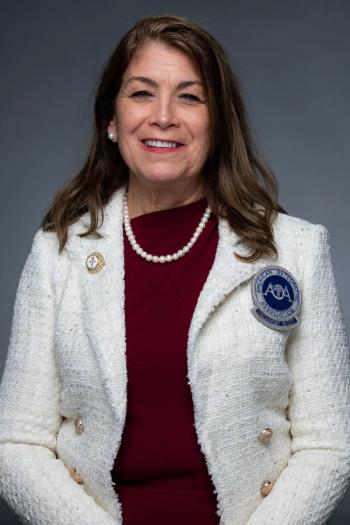
Seniors need sexual healthcare too
Due to social biases and stigmas, it can be easy for physicians to overlook seniors sexual health or to assume they aren’t sexually active.
Due to social biases and stigmas, it can be easy for physicians to overlook seniors sexual health or to assume they aren’t sexually active, but it’s crucial that physicians attend to it, says Karen Kirkham, MD, FACP, director of geriatrics at Ohio Health Grant Medical Center in Columbus, Ohio.
Older adults may be having more sex than prior generations, if sexually transmitted infection (STI) rates are any indication. The CDC reported that in people ages 55 to 64, cases of chlamydia nearly doubled between 2012 and 2016.
Those statistics should be cause for intervention, Kirkham says, and no different from any other health condition. “If we noticed all of a sudden people’s blood pressure was less controlled in a particular group, we would bear down on that and try to introduce more wellness, if possible,” she says.
Because physicians often assume older adults are not sexually active, or patients don’t offer that information, patients may not get screened or reminded of prophylactic measures to prevent STIs, Kirkham explains.
Additionally, prophylactic measures may no longer be on an older adult’s radar if they are recently single or widowed, she says, and patients may need to be reminded to use them. “As folks get older they age out, if you will, of the usual preventative care rhythms that we’re used to.”
Sometimes when she asks a new older patient about their sexual health she says they are surprised because no one has asked them about that topic in years.
“Sometimes on your first pass, the patient’s uncomfortable with your terms, so you sort of back it up and talk in generalities,” she says. “If we’re comfortable talking about it, then patients are more comfortable talking about it.”
She does recommend taking into account the context and culture of patients when asking these sensitive questions. As an example, when she worked in a rural part of Ohio, she shares, “Patients often felt I was violating their privacy if I was too direct. So I used terms like ‘how’s your private life going with your significant other?’”
Now in a bigger city, she says she can be more direct with her patients.
Regardless of the context of the patient’s situations, she always asks her older patients if they are single or married, and depending on the answer will ask if they are dating and intimate with anyone new. “If they say yeah, I’ll ask, ‘How’s that going? Is it to your liking? Are you comfortable?’”
But asking the questions is important, she says, and physicians should begin to see sexual health as just another facet of overall health. Asking the questions can lead to important determine screenings or help with common conditions of aging, such as painful intercourse that affects women after menopause, and erectile dysfunction that can affect men.
Sometimes, if a patient has a chronic medical issue such as a recent heart attack or lung disease, she says patients, or their spouses, are reticent to engage in sex for fear of hurting themselves or their spouse, and need support around how to maintain intimacy.
Additionally, as a geriatric doctor, the topic of urinary incontinence, which is a frequent point of discussion, is an easy segue to talk to women about issues such as vaginal dryness and painful intercourse.
Opening these conversations with patients is important, she says, because “once you decide something as a provider, patients are much more likely to get their preventative care if we show that we believe it’s important.”
Even more important, these conversations may lead to building a stronger relationship between physician and patient.
“What I’ve found is if you have the courage and the words to talk about sex with an older patient there’s this amazing level of trust and they start sharing all these other things with you that they never would have otherwise,” she says.
Newsletter
Stay informed and empowered with Medical Economics enewsletter, delivering expert insights, financial strategies, practice management tips and technology trends — tailored for today’s physicians.






